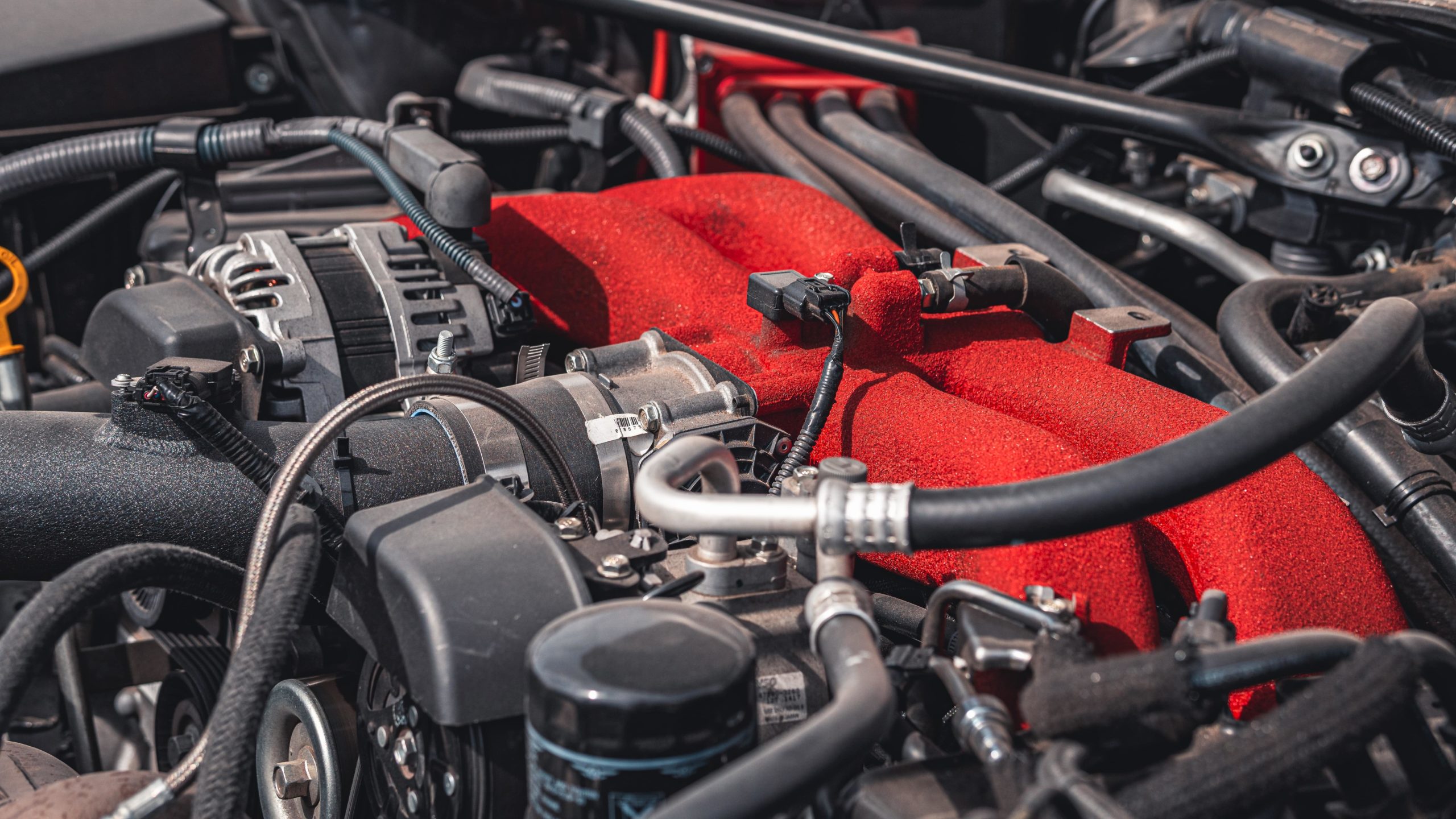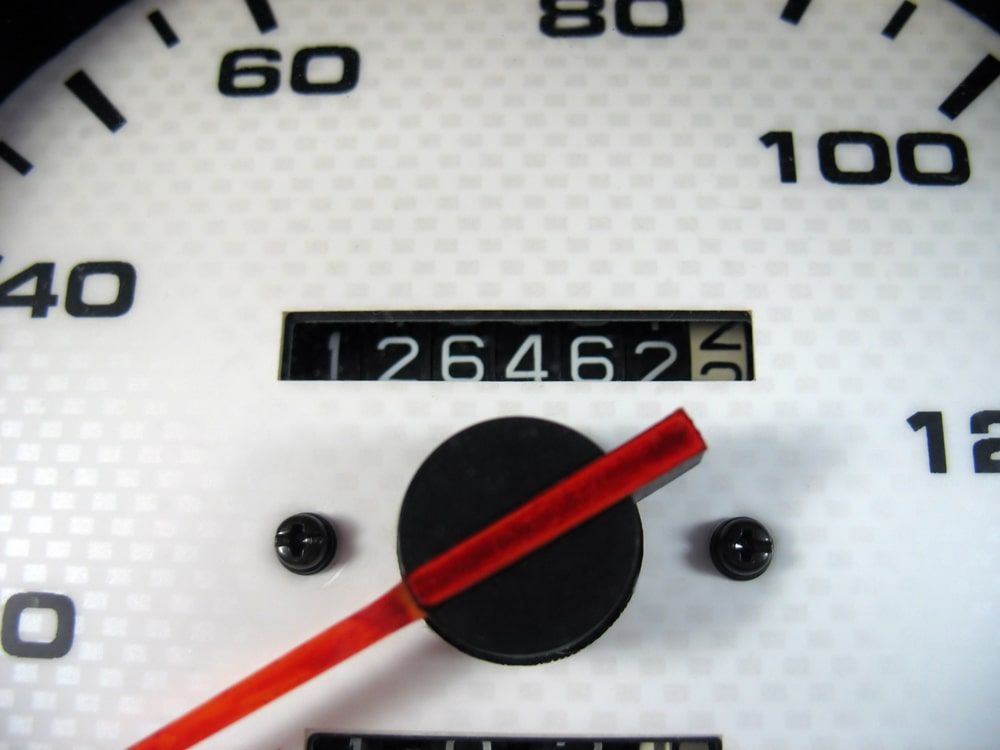When you purchase any new vehicle, the manufacturer attaches a warranty that covers any repairs that may need to be made within a certain period of time. See the chart below to find your factory warranty. Most vehicles are built to the highest standards and don’t need repairs. However, the warranty is offered as a good faith measure in case something goes wrong with the vehicle within the first 2-3 years. It’s important to know the length of your warranty and the terms of its expiration.
Let’s face it, we’ve all been there. We purchased that new vehicle, enjoyed it for several years and then little things begin to happen. Or we drove that used vehicle home from the dealership wondering how much “wear and tear” we inherited from the previous owner. Either way, the cost of repairs can be very expensive and whether or not your vehicle is still under warranty can have a major impact on your ability to pay for them. But rest easy friend. Here are a few simple methods to help you determine if your car is still under warranty.
Is Your Car New or Used?
The first step in determining if your car is still under warranty is understanding whether you purchased it new or used. New vehicles typically come with a couple of standard warranties while used vehicles may or may not come with any car warranty. Let’s take a deeper look at each of these scenarios.
Factory Warranty by Manufacturer
| Make | Model Year | Full Warranty (Years / Miles) | Powertrain (Years / Miles) |
|---|---|---|---|
| Acura | 2022 – 2006 | 4 / 50k | 6 / 70k |
| 2005 – 2000 | 4 / 50k | 4 / 50k | |
| Alfa Romeo | 2022 – 2015 | 4 / 50k | 4 / 50k |
| Audi | 2022 – 2001 | 4 / 50k | 4 / 50k |
| 2000 | 3 / 50k | 3 / 50k | |
| BMW | 2022 – 2000 | 4 / 50k | 4 / 50k |
| Buick | 2023 – 2020 | 3 / 36k | 5 / 60k |
| 2019 – 2013 | 4 / 50k | 6 / 70k | |
| 2012 – 2007 | 4 / 50k | 5 / 100k | |
| 2006 | 4 / 50k | 4 / 50k | |
| 2005 – 2000 | 3 / 36k | 3 / 36k | |
| Cadillac | 2022 – 2013 | 4 / 50k | 6 / 70k |
| 2012 – 2007 | 4 / 50k | 5 / 100k | |
| 2006 – 2000 | 4 / 50k | 4 / 50k | |
| Chevy | 2023 – 2016 | 3 / 36k | 5 / 60k (D1) |
| 2015 – 2007 | 3 / 36k | 5 / 100k | |
| 2006 – 2000 | 3 / 36k | 3 / 36k | |
| Chrysler | 2022 – 2016 | 3 / 36k | 5 / 60k |
| 2015 – 2010 | 3 / 36k | 5 / 100k | |
| 2009 – 2007 | 3 / 36k | Lifetime (NT) | |
| 2007 – 2006 | 3 / 36k | 3 / 36k | |
| 2005 – 2003 | 3 / 36k | 7 / 70k | |
| Dodge | 2022 – 2016 | 3 / 36k | 5 / 60k |
| 2015 – 2010 | 3 / 36k | 5 / 100k | |
| 2009 – 2007 | 3 / 36k | Lifetime (NT) | |
| 2007 – 2006 | 3 / 36k | 3 / 36k | |
| 2005 – 2003 | 3 / 36k | 7 / 70k | |
| Fiat | 2022 – 2012 | 4 / 50k | 4 / 50k |
| Ford | 2022 – 2007 | 3 / 36k | 5 / 60k (D1) |
| 2006 – 2000 | 3 / 36k | 3 / 36k | |
| Genesis | 2022 – 2017 | 5 / 60k | 10 / 100k (NT) |
| GMC | 2022 – 2016 | 3 / 36k | 5 / 60k (D1) |
| 2015 – 2007 | 3 / 36k | 5 / 100k | |
| 2006 – 2000 | 3 / 36k | 3 / 36k | |
| Harley | 2022 – 2020 | 2 / Unlimited | 2 / Unlimited |
| Honda | 2022 – 2006 | 3 / 36k | 5 / 60k |
| 2005 – 2000 | 3 / 36k | 3 / 36k | |
| Hummer | 2010 – 2007 | 4 / 50k | 5 / 100k |
| 2006 | 4 / 50k | 4 / 50k | |
| 2005 – 2002 | 3 / 36k | 3 / 36k | |
| Hyundai | 2022 – 2000 | 5 / 60k | 10 / 100k (NT) |
| Infiniti | 2022 – 2000 | 4 / 60k | 6 / 70k |
| Isuzu | 2008 – 2003 | 3 / 50k | 7 / 75k (NT) |
| 2002 – 2000 | 3 / 50k | 10 / 120k (NT) | |
| Jaguar | 2022 – 2016 | 5 / 60k | 5 / 60k |
| 2015 – 2012 | 4 / 50k | 4 / 50k | |
| 2011 | 5 / 50k | 5 / 50k | |
| 2010 – 2000 | 4 / 50k | 4 / 50k | |
| Jeep | 2022 – 2016 | 3 / 36k | 5 / 60k |
| 2015 – 2010 | 3 / 36k | 5 / 100k | |
| 2009 – 2007 | 3 / 36k | Lifetime (NT) | |
| 2007 – 2006 | 3 / 36k | 3 / 36k | |
| 2005 – 2003 | 3 / 36k | 7 / 70k | |
| Kia | 2022 – 2000 | 5 / 60k | 10 / 100k (NT) |
| Land Rover | 2022 – 2000 | 4 / 50k | 4 / 50k |
| Lexus | 2022 – 2000 | 4 / 50k | 6 / 70k |
| Lincoln | 2022 – 2007 | 4 / 50k | 6 / 70k |
| 2006 – 2000 | 4 / 50k | 4 / 50k | |
| Mazda | 2022 – 2007 | 3 / 36k | 5 / 60k |
| 2006 – 2003 | 4 / 50k | 4 / 50k | |
| 2002 – 2000 | 3 / 50k | 3 / 50k | |
| Mercedes | 2022 – 2000 | 4 / 50k | 4 / 50k |
| Mercury | 2011 – 2007 | 3 / 36k | 5 / 60k |
| 2006 – 2000 | 3 / 36k | 3 / 36k | |
| Mini | 2022 – 2002 | 4 / 50k | 4 / 50k |
| Mitsubishi | 2022 – 2004 | 5 / 60k | 10 / 100k (NT) |
| 2003 – 2000 | 3 / 36k | 5 / 60k | |
| Nissan | 2022 – 2000 | 3 / 36k | 5 / 60k (EXC) |
| Pontiac | 2010 – 2007 | 3 / 36k | 5 / 100k |
| 2006 – 2000 | 3 / 36k | 3 / 36k | |
| Porsche | 2022 – 2000 | 4 / 50k | 4 / 50k |
| Ram | 2022 – 2016 | 3 / 36k | 5 / 60k (D1) |
| 2015 – 2010 | 3 / 36k | 5 / 100k | |
| 2009 – 2007 | 3 / 36k | Lifetime (NT) | |
| 2007 – 2006 | 3 / 36k | 3 / 36k | |
| 2005 – 2003 | 3 / 36k | 7 / 70k | |
| Rivian | 2022 | 5 / 60k | 8 / 175k |
| Saab | 2012 – 2010 | Void | Void |
| 2009 – 2008 | 4 / 50k | 4 / 50k | |
| 2007 | 4 / 50k | 5 / 100k | |
| 2006 – 2000 | 4 / 50k | 4 / 50k | |
| Saturn | 2009 – 2007 | 3 / 36k | 5 / 100k |
| 2006 – 2000 | 3 / 36k | 3 / 36k | |
| Scion | 2016 – 2002 | 3 / 36k | 5 / 60k |
| Subaru | 2022 – 2000 | 3 / 36k | 5 / 60k |
| Suzuki | 2013 – 2003 | 3 / 36k | 7 / 100k |
| 2002 – 2000 | 3 / 36k | 3 / 36k | |
| Tesla | 2022 – 2012 | 4 / 50k | 8 / EXC |
| 2011 – 2008 | 3 / 36k | 3 / 36k | |
| Toyota | 2022 – 2000 | 3 / 36k | 5 / 60k |
| VW | 2022 – 2020 | 4 / 50k | 4 / 50k |
| 2019 – 2018 | 6 / 72k | 6 / 72k (EXC) | |
| 2017 – 2009 | 3 / 36k | 5 / 60k (EXC) | |
| 2008 – 2002 | 4 / 60k | 5 / 60k | |
| 2001 – 2000 | 2 / 24k | 10 / 100k (NT) | |
| Volvo | 2022 – 2000 | 4 / 50k | 4 / 50k |
Table updated in June, 2022. Source: factorywarrantylist.com. Don’t see your vehicle make? Leave a comment below and we’ll be sure to add it to the list.
Has Your Auto Warranty Expired or Will Expire Soon?
Here is the list of the top extended car warranty providers in the United States.
New Car Basic and Powertrain Warranties
If you purchased your vehicle new then you have a few things to consider. Nearly every new vehicle purchase comes with two different types of car warranty, each with its own periods of coverage.
The first is your Basic Coverage. It’s sometimes referred to as “Bumper to Bumper”, which is a comprehensive warranty for any defect that may occur with your new vehicle. These warranties are designed to cover defects in the manufacturing process. They are effective for a period of years and/or a set number of miles. For example, a 3 year / 36,000-mile Basic Coverage warranty is good for 3 years from the original date of purchase OR until you have put 36,000 miles on the vehicle. You can simply check your date of purchase or your odometer to see if this car warranty still applies.
The second type of car warranty is the Powertrain Warranty. This typically covers manufacturing defects for any parts that give your vehicle power, such as the engine and transmission. These also are effective for a period of years and miles and are typically effective for longer periods than the Basic Coverage, for example, 6 year/ 70,000-mile.
Armed with this information, you are now ready to see if your new car is still under warranty. You can certainly check the manufacturer’s website for details or see the table above. You can also contact the dealership where you purchased the vehicle. Simply provide them the Vehicle Identification Number (VIN).
Maintaining Your New Car Warranty
While all new vehicles come with a factory warranty, you are required to perform regular maintenance to make sure your coverage remains effective. You will need to follow the manufacturer’s directions for having routine maintenance and oil changes performed.
Car manufacturer can void your warranty if you fail to follow the factory guidelines and perform routine maintenance. Most manufacturers state in their agreement that they have the right to void your warranty if you do not take good care of your car.
Used Car Warranties
Determining if a used car is still under warranty can be little trickier as there are other factors to consider such as:
- Was the new car warranty transferable?
- Did the used car dealer provide a warranty?
- Is there a state-specific warranty? (ex. Massachusetts)
Some new car warranties can be transferred to another buyer, which means you could have coverage for the remainder of the basic coverage and/or the powertrain warranty. Some used car dealers may also offer a limited warranty, usually for a period of a few months and few thousand miles. You should contact the dealer that sold you the used vehicle to inquire about any warranty that may have been provided with the car. You will need to have your VIN number handy.
In addition, some states, such as Massachusetts, have Used Vehicle Warranty laws. These laws require used car dealers to provide a written warranty for any defects that will impair the vehicle’s safety. Please check the website of your state government (such as www.mass.gov) to get more information on vehicle warranty laws.
Perhaps the simplest way to check to see if your used car is under warranty is to use a service such as Carfax. You can go their website, and enter your VIN number and retrieve information about your vehicle including service history and the car warranty. Sometimes, if you get the car history report the information for the factory warranty will be there as well. Keep in mind these websites charge a fee for their services.
Warranty Terms
Your vehicle’s warranty will be stated in years or miles. A basic warranty that covers the general components in the vehicle will last anywhere from 3 to 5 years or between 36,000 and 60,000 miles, whichever comes first. Your powertrain, however, has a stronger warranty. It can last anywhere from 5 years and up or between 50,000 and 100,000 miles, depending on the manufacturer.
The warranty terms are listed in both years and miles to cover all types of usage. A good example of this is a new car that’s only driven to and from work. Usually, this will add up to approximately 10,000 miles a year. In this case, the warranty would be in place for up to 4 or 5 years. On the other hand, a person who drives the vehicle upwards of 18,000 to 20,000 a year, would drive themselves out of their warranty in about 2 years. This way of providing warranty term limits makes it beneficial for everyone. Whether they drive a lot or drive a little over the course of a year.
Research Your VIN
If you’ve owned your car for a few years and are unsure of what the terms of your warranty are, you have several ways you can gain access to the information. You can call the dealership you bought your vehicle from, or you can research your VIN number.
You can find the VIN on the inside of your driver’s side door. It can also be located in the lower right corner of the windshield on the dash (driver’s side). If you don’t mind spending a little money, there are several websites available that will research your VIN. They will provide you with a detailed service history of your car and its warranty terms.

Maintenance History
It’s important to keep a detailed maintenance history for your vehicle. Include any oil/filter changes, radiator flushes, A/C recharges, brake changes and regular tune-ups that you’ve had performed. This can benefit you in the long run, especially if you choose to purchase an extended warranty. It can also increase your vehicle’s resale value. While it may seem to be excessive, writing down the details of vehicle’s maintenance history provides a record of care. Vehicles that are taken care of over the years last longer and run more efficiently.
We’re Here to Help
Following the steps above should quickly get you the car warranty information you need about your specific vehicle. In summary:
- Determine if you purchased your vehicle new or used.
- Check the manufacturer’s website for basic and powertrain warranty information.
- Contact the dealership with your VIN number
- Utilize Carfax, or a similar paid service, using your VIN number
If you have any questions please comment below, we will be happy to help you!







